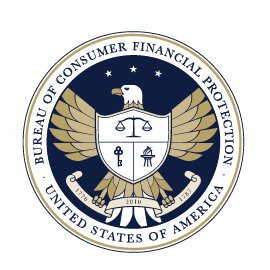An advisory jury, empaneled pursuant to Federal Rule 39(c)(1), recently returned an inconsistent verdict after trial in an action brought by the Consumer Financial Protection Bureau last year challenging that attorneys of a law firm specializing in the collection of debts were not “meaningfully involved” in collection activities engaged in by the firm in violation of the federal Fair Debt Collection Practices Act. A copy of the complaint in Consumer Financial Protection Bureau v. Weltman, Weinberg & Reis Co., L.P.A. is available at: Link to Complaint. The jury determined that the law firm’s pre-suit collection letters contained “false, deceptive, or misleading representations or…
The U.S. Court of Appeals for the Ninth Circuit recently rejected a so-called “flat-rating” claim, holding that a company that sent letters demanding that hospital patients pay their overdue medical bills did not create a false or misleading impression that the company was actually participating in collecting the debts in violation of the federal Fair Debt Collection Practices Act (FDCPA), because the company meaningfully participated in the hospital’s efforts to collect debts. A copy of the opinion in Echlin v. PeaceHealth is available at: Link to Opinion. The plaintiff received treatment at a hospital but failed to pay the medical bills. After…
The District Court of Appeal of the State of Florida, Fourth District recently affirmed entry of summary judgment in favor of a motor vehicle retail seller and assignee against a consumer who alleged that the 27.81 percent interest charge under the retail installment contract (“RIC”) exceeded the interest rate limit imposed by Florida’s usury statute. In so ruling, the Court concluded that the financing contract at issue was not subject to the interest rate limit imposed by Florida’s general usury statute, but instead by the specific controlling statute, the Florida Motor Vehicle Retail Sales Finance Act. A copy of the…
The U.S. Court of Appeals for the Seventh Circuit recently affirmed a trial court’s finding that a servicer did not violate the federal Real Estate Settlement Procedures Act (RESPA) because the borrower could not prove that the servicer’s failure to respond to a “Qualified Written Request” (QWR) caused her actual damages, as required by 12 U.S.C. § 2605(f)(1)(A). A copy of the opinion in Linderman v. US Bank National Association is available at: Link to Opinion. In 2004 a borrower bought a home with the help of a mortgage loan. The borrower lived in the home with her ex-husband, their…
The District of Columbia Court of Appeals recently held that a condominium association acting on its six-month super-priority lien for unpaid condominium assessments pursuant to § 42-1903.13(a)(2) of the District of Columbia Condominium Act (the “D.C. Condo Act”) may not conduct its foreclosure sale subject to a first deed of trust lien, even if the terms of sale stated that the condo unit would be sold subject to first deed of trust. A copy of the opinion in Liu v. US Bank National Association is available at: Link to Opinion. The borrower obtained a loan to finance his purchase of a condominium…
The Appellate Court of Illinois, First District recently held that a foreclosing mortgagee’s payment of post-foreclosure sale assessments nearly a year after the sale date confirmed the extinguishment of a condominium association’s lien for pre-sale assessments created under the Illinois Condominium Property Act. In so ruling, the First District found that the plain language of the Act did not place any “temporal requirement on the payment of post-purchase assessments in order for the payment to confirm the extinguishment of any lien created under subsection 9(g)(1) of the Act[.]” A copy of the opinion in Quadrangle House Condominium Association v. U.S.…
A decision out of a district court in California continues the trend of holding appropriate interest rate disclosures to be within the bounds of the FDCPA and other consumer protection acts. In Pavlovich vs. Account Discovery Systems, LLC, the U.S. District Court for the Southern District of California found no violation of the FDCPA, the California Rosenthal Act or the California FDBPA for an interest charge disclosure attached within the agency’s initial correspondence. A copy of the opinion is available at: Link to Opinion. The plaintiff brought a putative class action suit alleging violations of the FDCPA and the Rosenthal Act against both…
The U.S. Court of Appeals for the Fourth Circuit recently concluded that lender-paid mortgage insurance (“LPMI”) disclosures under the federal Homeowners Protection Act are only required if LPMI is a condition of the borrower obtaining the loan. In affirming the trial court’s dismissal of the borrowers’ claims, the Fourth Circuit dissected the specific language of the provision in the HPA addressing disclosures related to mortgage insurance, 12 U.S.C. § 4905. Specifically, the Fourth Circuit determined that the disclosures are only required if LPMI is a condition of the loan at the time of closing. In this case, the lender did not…
The U.S. Court of Appeals for the Eighth Circuit recently joined with the Third, Fourth, Sixth, Seventh, and Ninth Circuits in applying a materiality standard to section 1692e of the federal Fair Debt Collection Practices Act (FDCPA). In doing so, the Eighth Circuit affirmed the trial court’s order granting judgment in favor of a debt collector and against a borrower. A copy of the opinion in Hill v. Accounts Receivable Services, LLC is available at: Link to Opinion. On Oct. 30, 2015, a debt collector filed suit in Minnesota state court against a borrower for unpaid medical bills and statutory interest under…
In an action against a Florida consumer plaintiffs’ firm that also functions as consumer bankruptcy debtors’ counsel, the U.S. Court of Appeals for the Eleventh Circuit recently held that a bankruptcy attorney violates section 526(a)(4) of the Bankruptcy Code if he instructs a client to pay his legal fees using a credit card. In so ruling, the Court held that there is no requirement under the statute that the advice be given for an invalid purpose designed to manipulate the bankruptcy process. A copy of the opinion in Loyd P. Cadwell v. Kaufman, Englett & Lynd, PLLC is available at: Link…
The U.S. Court of Appeals for the Ninth Circuit recently held that calls from a survey company that received the called party’s contact information through an intermediary did not violate the federal Telephone Consumer Protection Action (TCPA) because the called party provided prior express consent. In so ruling, the Court held that “a party that receives an individual’s phone number indirectly may nevertheless have consent to call that individual,” and it did not matter that the defendant, rather than the entity that actually obtained the called party’s consent, placed the calls. A copy of the opinion in Fober v. Management and…
The U.S. Court of Appeals for the Seventh Circuit recently held that the minor child of a credit card account holder was not bound by the arbitration clause in the cardholder agreement because she did not become an authorized user of the account by using the credit card. The Seventh Circuit also held that the doctrine of estoppel did not bind the minor to the arbitration clause because the minor did not “directly benefit” from her parent’s use of the credit card. A copy of the opinion in AD v. Credit One Bank, NA is available at: Link to Opinion. In…












